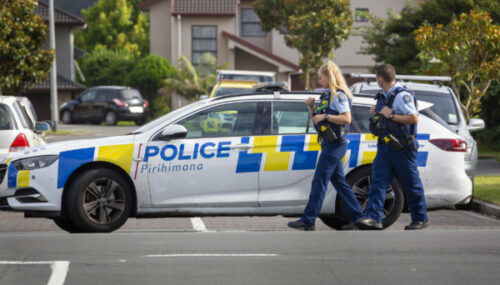
- By Christopher Luxon, National Party leader and MP for Botany
Gangs have been an unwelcome part of New Zealand’s criminal scene for several decades, but over the last five years, their numbers and the level of violence they are willing to engage in have increased noticeably.
Since Labour took office, gangs have added more than 2000 new members to their ranks, while Police have added only 1300 new officers over the same period. Gangs are now recruiting faster than police.
We have seen an escalation in crime including public intimidation and shootings. Recently, there were 23 gang shootings in a 14-day period.
A family in South Auckland had bullets fly into their house while they were eating dinner. On the same night, a Papakura family had their house with two young children inside, targeted in a drive-by shooting with a shotgun.
And just this month we had the horrifying story of a three-year-old boy caught in a gang brawl at a park that left him covered in blood.
Hard-working business owners have become so desperate to protect themselves that they are trying to access firearms.
This is not the New Zealand any of us want.
New Zealanders deserve to feel safe in their homes, in the small businesses they work so hard in, and in every community, wherever it is.
I recently announced four new measures that a National Government would implement to help frontline police tackle gangs.
These powers would keep not just New Zealand’s streets safer, but New Zealanders’ homes too.
One: We will ban gang patches and insignia in public.
We already do this in government buildings like hospitals and courts. National will extend these rules to every public space.
Patches are about intimidation and you only get one after you’ve committed a violent crime to show you’re loyal to a gang.
Two: Police will have the power to stop gang members gathering in public.
They will have the power to issue dispersal notices to anyone they reasonably suspect of being a gang member or gang prospect.
Once issued, gang members would be required to immediately leave a public area and not associate in public with one another for seven days.
Three: Police will have the power to stop gang offenders associating with each other.
Gang crimes don’t just happen; they are co-ordinated and planned. Often, police know exactly who the criminals are, but can’t stop them preparing to commit a crime.
Police will be able to issue Consorting Prohibition Notices if they need to in order to stop known gang offenders committing serious offences.
Once issued, those gang members won’t be allowed to associate or communicate with one another for up to three years.
Four: Police will have the power to stop gang members accessing guns.
National will give police the power to issue Firearms Prohibition Orders. These could be issued against any gang member who in the last 10 years has been convicted of a serious offence and would make it illegal for that person to access firearms or enter certain premises where firearms are present.
Police would have the power to search people who are subject to a Firearms Prohibition Order and search their premises or vehicles for firearms – at any time.
While police do their very best to keep us safe, it’s clear they don’t have the backing they need from the Government to confront the growing threat and increased sophistication of organised criminal gangs.
If we want to prevent the current level of violence from becoming a permanent feature of New Zealand society, we need to give police the tools they need to go after the criminal gangs who only exist to inflict fear and misery on our communities.










